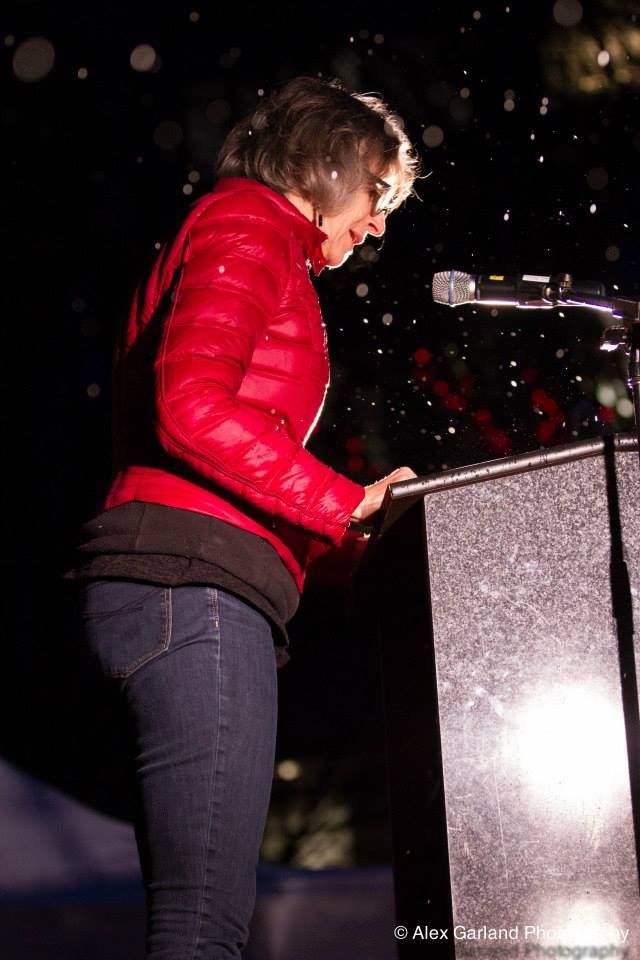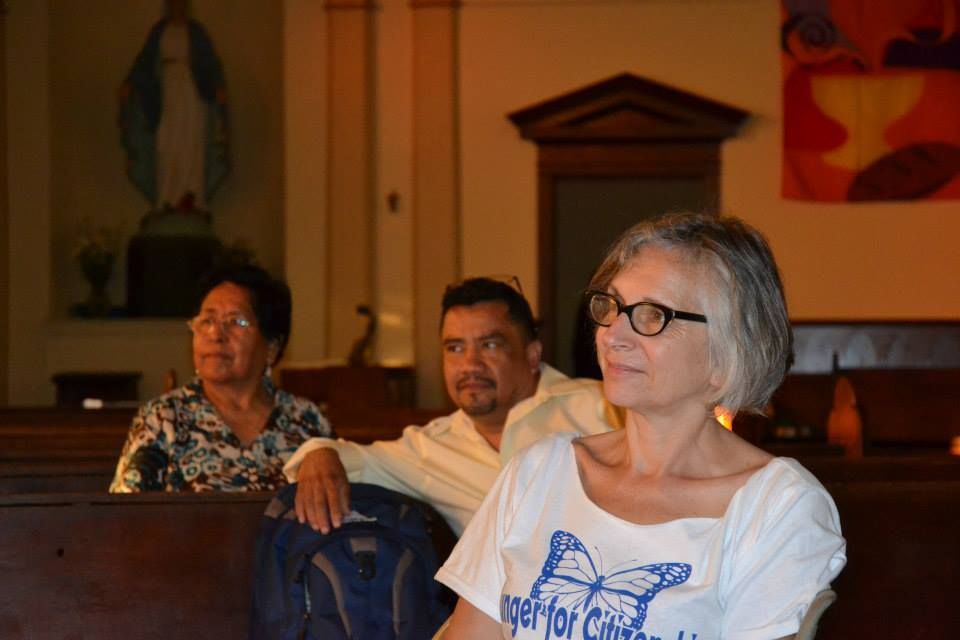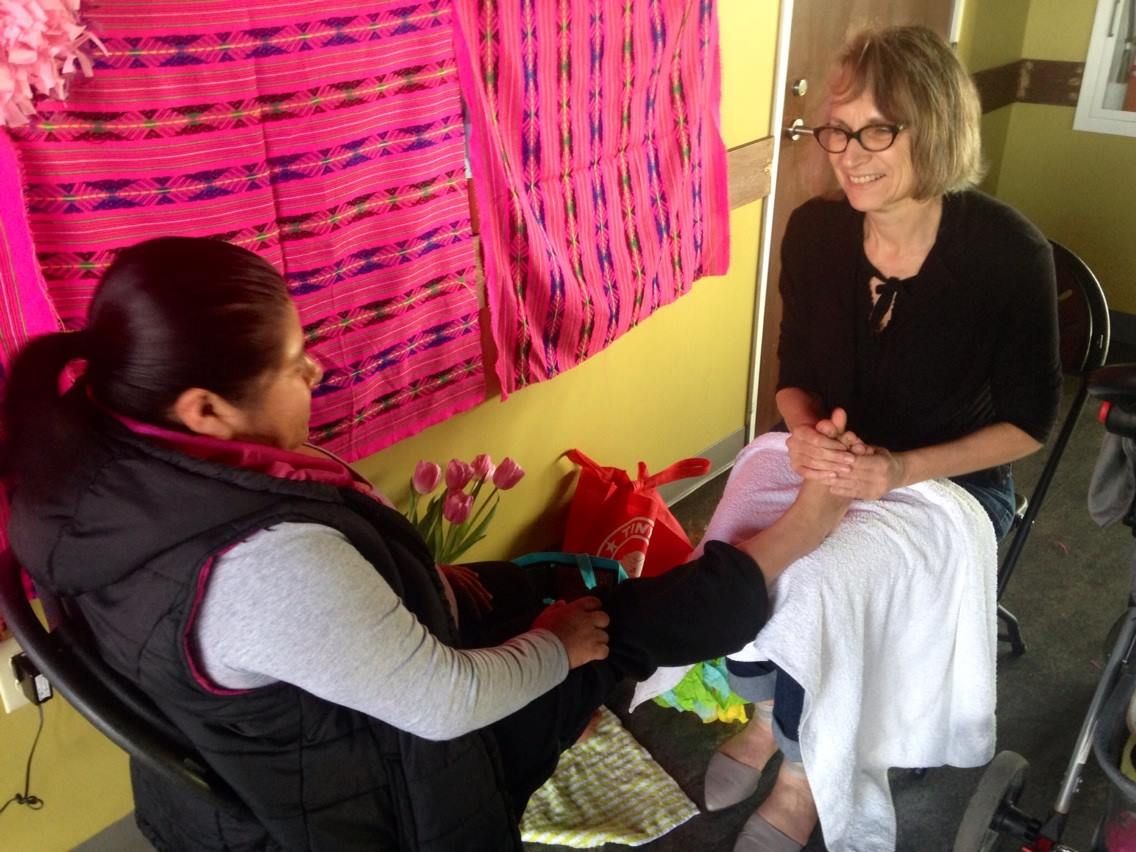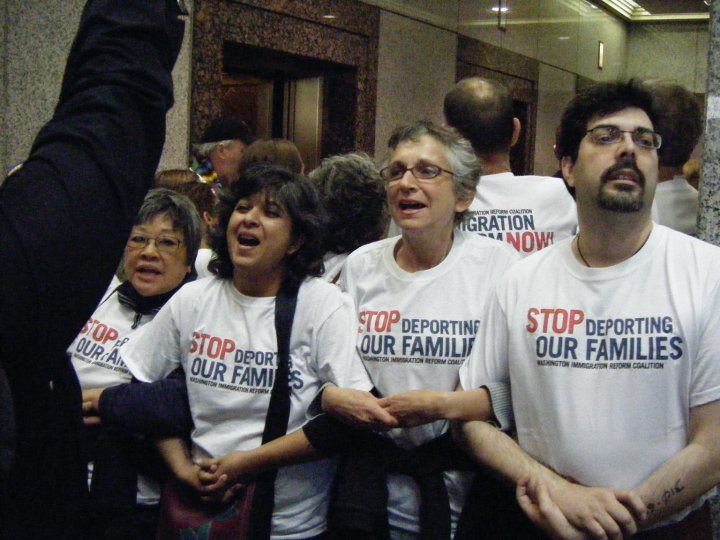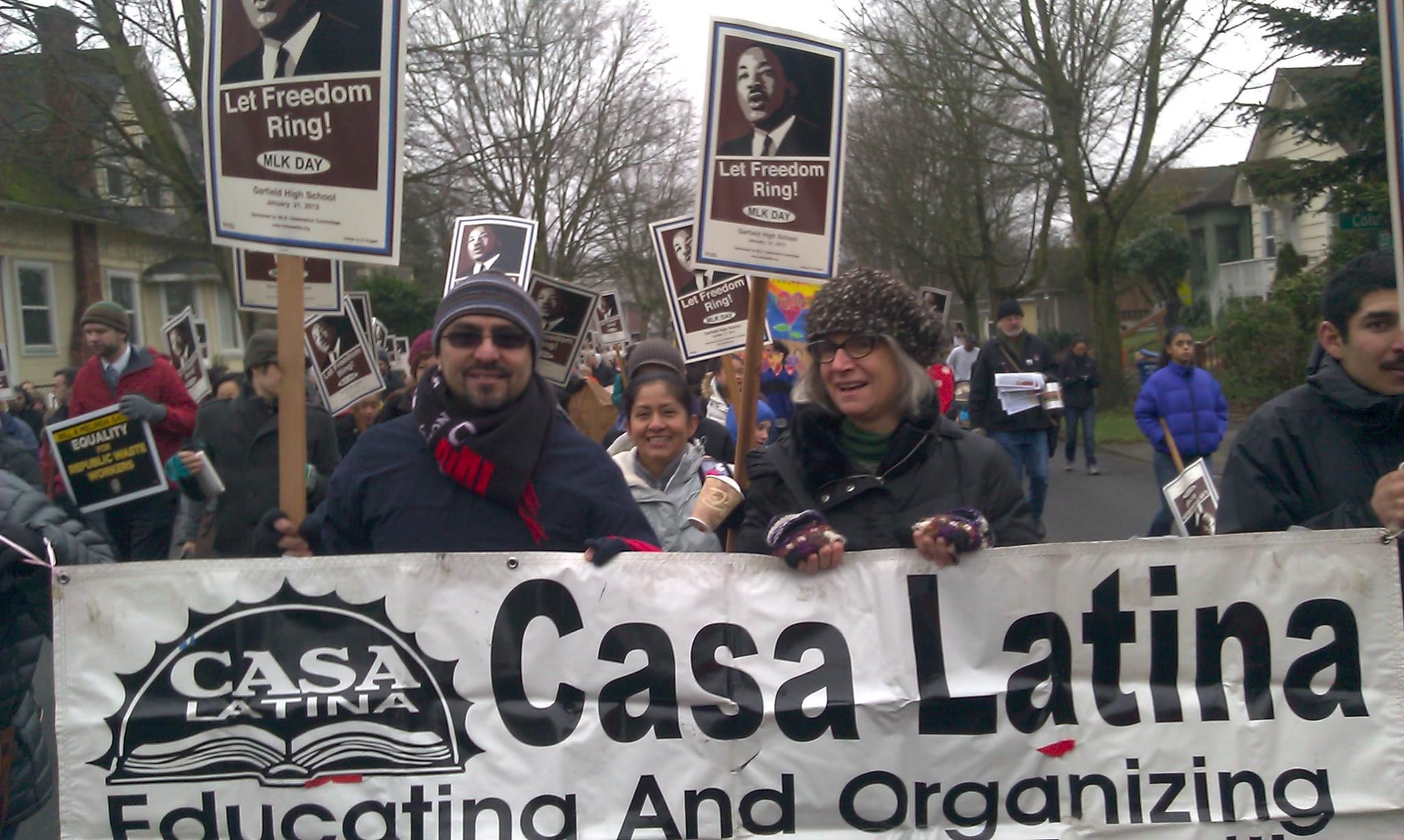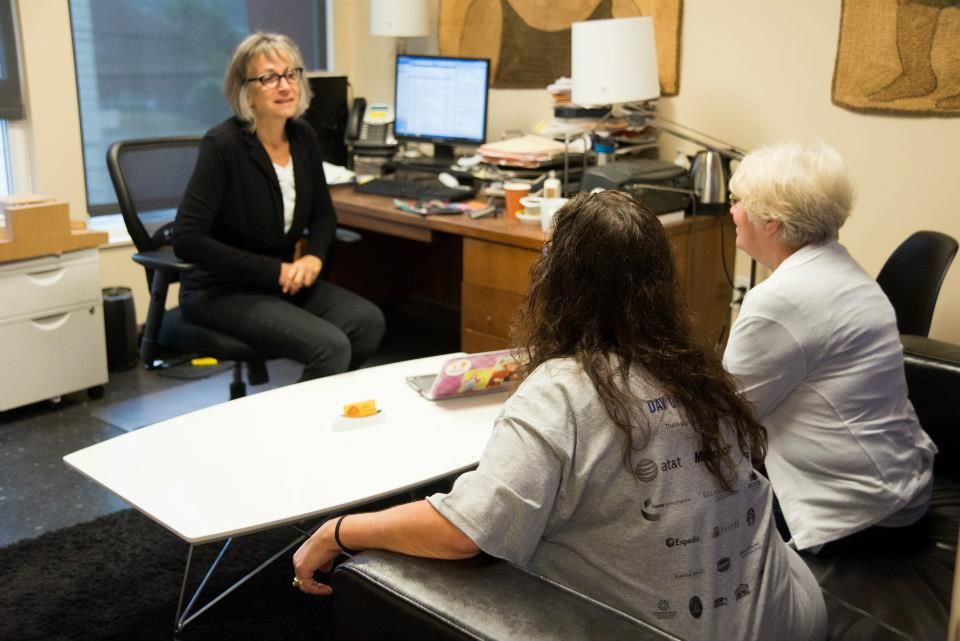I grew up in Seattle. My mother was born in Seattle. Her parents immigrated here from Eastern Europe, from Poland and Russia. Her mother immigrated from Wales, but they were on their way from Poland-Russia over to the United States. My maternal grandmother went - and I think my grandfather did too - to Garfield High School when they came over. And my mother went to Garfield. They lived in the Jewish neighborhood in the Central area. My mother met my father, who was getting his PhD in physics in Los Angeles. They got married and his first job took them to the University of Maryland. I was born in Los Angeles and moved to Maryland when I was six weeks old. My family stayed there until my father got a job in the University of Washington and we moved to Seattle when I was seven years old.
We were Conservative Jews. They were very active in the Jewish community. My parents were one of the founding families of Beth Shalom. The synagogue played an important part in my life, and the value of Tikkun Olam played an important part. It was something my dad modeled and talked about with us. He was always involved in social issues. My dad was a change-maker too, mainly around his work with Soviet Jews. So, I saw that growing up with him. Another thing he modeled for me was that whatever you decide to do as work, you should really love it because you spend most of your life doing it and it should mean a lot to you, be something you love doing. I think that really guided me in where I wanted to go. It wasn’t just because I wanted to be altruistic; it was also because I wanted to do something I really loved. That was more important to me than something that had financial security.
On the way back from Israel, when I was coming back after having lived there for a year after dropping out of college, I traveled through Europe with an Israeli boyfriend. We were in Spain, but only for three days, and I just loved it. I wanted to go back, but people didn’t speak English, so I thought I’d better learn some Spanish, so I can go back. I started taking Spanish classes in college, and after two years of Spanish classes, I still couldn’t speak it. I was a good student, but I wasn’t learning how to speak. I was reading and writing. And in my last class, I was gonna say, this is my last one, it’s not working, so I’d better go live somewhere where they speak Spanish. It turned out that it was being taught by a Spanish grad student, who I fell in love with. After classes were over, we ended up dating and living together, but he didn’t speak English. I was a faster language learner than he was, and he was probably a better teacher than I was, so I ended up learning Spanish from him.
There was quite a lot of idealism there at that time. It was before the Yom Kippur War. For me, it was living in a country where everybody was Jewish. That was really a different experience from being a minority, as I felt growing up in Seattle. I think in some ways it might have to do with my social justice orientation – it was very exciting to be part of a bigger thing, part of constructing a new society, a new country. There was a lot of idealism then, so I think that impacted me. Also, just personally, I was very shy before I went there, and I had to not only make new friends, I had to make new friends in a different language, so I was challenged a lot. And that shook me out of my shyness, because when I came back to the United States, it was like, “If I did that, I can do anything.” I think that gave me a lot of confidence.
For the first year and a half, I worked in this project that brought Americans to do these six-week study tours of the country, where they lived with Nicaraguan families in a city that was in the middle of the war zone. They experienced first-hand the effects of the U.S. policies funding this civil war. This was from 1985-1987. In 1979, the Nicaraguans went through a revolution. Carter wasn’t as anticommunist as Reagan was; when Reagan got into power, he really wanted to overthrow that government. So he funded the Contra war. But there were a lot of people in the United States who didn’t agree with that intervention. They would go to Nicaragua and get that first-hand experience, take a lot of photos and come back and do slide-shows. This was before personal computers and digital cameras. I was the language coordinator. The adult students, a lot of whom were journalists or activists from the U.S., they took Spanish for four hours a day, taught by Nicaraguan teachers. But the teachers had never taught Spanish as a second language before, so I did the teacher training, and also ended up writing their curriculum. We made our own curriculum, which was more based on the reality of being in Nicaragua during those times, so people could talk to their families, and talk to other people about their experiences.
Back to Seattle and starting Casa Latina
I met my first husband in Nicaragua; he was from Mexico. We went back to Washington D.C., but when I had my first child I felt that I needed to be closer to my family, so we moved back to Seattle. I first started to work in the ESL department at the University of Washington. Then I moved onto the YMCA – Metro YMCA had an Adult Ed program, and they had just started an ESL program for homeless Latinos. My predecessor had written a grant, and then when I got there, I started implementing it. As part of that work, we were going out on the streets to recruit students. This coincided with a new wave of Latino immigrants coming to Seattle, who had been recruited in California by fishing companies in Alaska. Fishing companies did hire a lot of people, but they didn’t necessarily hire them immediately, and the people coming in didn’t know anyone here or have a lot of money. So they were just staying out in the streets downtown or in the shelters. The Seattle shelter homeless service community was completely unprepared because very few people spoke Spanish. People started hiring one person who was a Spanish speaker for different shelters and programs. We ended up joining all these people together and figured out how we could create a new organization that would specifically focus on this group. I had the administrative and fundraising experience, and the contacts to be able to take on the role of being an executive director, and the rest of them became the board. I also had the support of YMCA to move some of our funding to do seed funding for the organization. That’s how Casa Latina started in 1994.
We were organizing it in 1993, and officially began in 1994, when I quit my other job and went over to this new organization. We were fiscally sponsored by Northwest Immigrants Project in the beginning. Our original budget was $25,000. Most of it was one grant - $23,000 from the federal government, which was eliminated the following year when the Republicans took over the House and Senate. That was the Adult Education for Homeless grant program, along with a lot of other federal funding programs for social services and programs. So, we lost it after one year, but we were able to then gain money from the City and do other fundraising. We stayed low level, under the radar for five years, until we started organizing workers who were on the street looking for work. We worked with the Belltown Business Association to figure out how to get them off the street. We ended up being able to start a worker center in a parking lot, got some support for that. That launched us into the public consciousness, because there was a lot of controversy. A lot of people didn’t like having homeless immigrants there at all, so some people thought that if you just make life hard enough, they would go away. Other people were thinking that you need to give them an alternative so they won’t be on the street. But some people thought if we invest more in helping people, then people would come from all over the country to be homeless here, because we’re so nice. But people were coming because there were a lot of jobs, with the tech explosion in the 90’s. The economy was going strong. What people were doing was working and helping homeowners. It was basically either residential construction or gardening. Since Seattleites had more money, the price of housing was going up, so people were getting loans and doing a lot of renovations. So whether we were nice to them or not, they would still come, because there were jobs. That allowed us to be able to gain the support in organizing them and get a space there. We stayed in the parking lot for ten years. We never completely got the people off the street, but we decided we needed to find a place people could look for work with dignity, an indoor place where they could both look for work and also have better facilities for education programs. We did build a structure out there to have an ESL classroom, which we heated with a space heater. It was pretty rustic where we were.
A hundred people would come every day looking for work, and there was no room for everybody to be indoors. There was one room for people, if they wanted to sit and have coffee, and then we had a space where the class was, so some people could go into the classes if they wanted to while they were waiting for work. Some people just went to class to be able to sit in a more comfortable space! The thing about the organization is that it was a social justice organization, not a social service organization. We approached it from an organizing perspective. Instead of us determining what all the rules were, and how much salaries were gonna be, basically doing everything and feeling the responsibility to run the program ourselves, we organized the workers to make all the decisions that affected them. They had to collectively decide how the work was distributed, what the minimum wage was, the working conditions, minimum number of hours. Everything evolved as time went on, but they also were very conscious of the desire of the neighborhood to not have people out on the street. One of the things they did to try to keep people in was a lottery for jobs. When they first thought about how to distribute work - everybody always thinks, first come first serve. But by that time, we found organizations in Los Angeles who had had worker centers for longer with our same philosophy. They saw that the other worker centers had tried that, and what happened was that people would start camping out and waiting to be first in line. So, we decided that everybody who got in by six a.m. would get a ticket. We would do a lottery. But we would only pick out ten people. Once we dispatched those ten jobs, we would do another lottery so people would stay there. We changed once we got into a building and there wasn’t the same issue of competing with an outdoor pickup zone. In the building, there was no pressure to stay. We did a lottery with everybody, so they know where they were on the list, and they could decide if wanted to stay or not. For example, if somebody is number fifty on the list, they know that chances are slim that they’re going to get work, so they go to class instead. People were basically learning English while they were waiting for work.
In the beginning, there was $23,000 from a grant, and we got another grant that lasted for six more months through the YMCA where I had hired somebody half-time through that. So, she worked with me. I also worked half-time. Then her money ran out, so I ended up going on unemployment for eight months so that she could have my salary. I worked thirty hours a week. I got paid for half-time. Then, I just got paid unemployment. But the unemployment was also calculated what I had been making before full-time when I worked at the YMCA. I didn’t really get too much of a reduction in income by going on unemployment. But it was uncomfortable having to go to the unemployment office every week, where they would ask me, “How many jobs have you applied for? Are you looking for work?” Yes! I’m writing grants. I was, at that point, supporting my daughter and my former husband. He was going to school. But also, I had gotten pregnant which I didn’t know. I started Casa Latina in January 1994. My son was born September 1994, nine months later. If I had known I was pregnant, I don’t know if I would’ve made the decision to do what I did and take the risk. But since I was already doing it, I did it through my pregnancy and then having him as an infant. I had the luxury of coming from a middle-class family, and I knew I could fall back on my parents. I really had that privilege, and being able to take those financial risks, so I didn’t have to worry about that.
Making a home with Casa Latina
It was in line with my values. And I loved being able to start something new. Before I started working at Casa Latina, I had a resume that was three pages long over six years. I jumped around from job to job because I liked getting in there and fixing everything. Once it was running smoothly, I would be bored, and I would leave. So, I was telling myself that my next challenge is to be somewhere for seven years, because it seemed like an eternity to be in the same job for seven years. That’s when I ended up co-founding Casa Latina and being there for 22 years. I’d worked at a lot at other non-profits and was always trying to fix something that somebody else had started, that somebody else had messed up. I liked being able to start all over and use what I knew and realize that the only mistakes I’d be fixing were my own. Which was not exactly true as the organization grew a lot bigger, but definitely it was true in the beginning. So, I really liked that, and I liked being able to create an organization that was really in line with my values, and that I could attract other people who shared those values. I had great groups of colleagues that I was privileged to work with over the years.
What I’m most proud of is lifting up the voices of a group of people that had no voice in Seattle before, and that were only seen from the outside as objects, or public nuisances. I’m proud of helping to create an organization where immigrants were able to gain a voice, figure out how the system works, and learn how to advocate for themselves. Before we started, you didn’t see Latinos, Spanish speaking immigrants lobbying in the City Council or in the State legislature in Olympia. Now it’s the most normal thing because we know a lot of people who have done that. I remember so many times when we were down there, in Olympia particularly, the legislators were like, “Can I take a picture with you?” We were such a novelty. The good thing is that we are not a novelty anymore. Now it’s not unusual to have poor people going to the state capitol and lobbying, even poor people who don’t speak the language. I think that a lot of City policies that have been instituted that have made Seattle much more of a welcoming community are because of the participation of the immigrants I worked with. They participated in pushing for things like a higher minimum wage city-wide. We’ve also been leaders in issues around wage theft, because there are some unscrupulous employers who will take advantage of people that they think won’t complain, and they underpay or just don’t pay them what they are legally owed. So, we have had that experience over the years of building a program – first of all, an American helping somebody to advocate because we knew more about the system, and then moving into a legal aid type model, and then we moved into an organizing model where people are working in a group to figure out strategies, including legal strategies, but legal process takes a really long time. So, they use other strategies that would be more effective, like going to talk to the employer with a big group of people or picketing outside the employer’s place of business – basically doing a lot of social pressure to get people to pay what they legally owed the employee. That type of work gave us an expertise that helped in being able to improve the enforcement of laws here in Seattle. Because of that, also, we were instrumental in getting Seattle to invest a lot of money in that, including establishing the Seattle Office of Labor Standards. So, I think that the biggest thing is really having that voice and that perspective, and not just the perspective of somebody like me representing them, but of the people themselves.
Work with undocumented immigrants
We’ve always made a policy of not asking immigration status, so I don’t have any firm statistics on how many undocumented people we’ve helped. I can only say that since there hasn’t been a way for people who are poor to immigrate to the United States to work legally, most of the people who have come in the last 25 years have been undocumented. They may have come with a visa but they work without a work authorization. So, that’s the only way I could know, is basically by how long they have been here. And I would say that of course, the longer people are here, the more possibility they have of getting documented.
Now I am working as a consultant to use the expertise that I have to help other social justice organizations raise money and manage growth, especially in this period of our history when our immigrant neighbors are under attack by the federal government.

